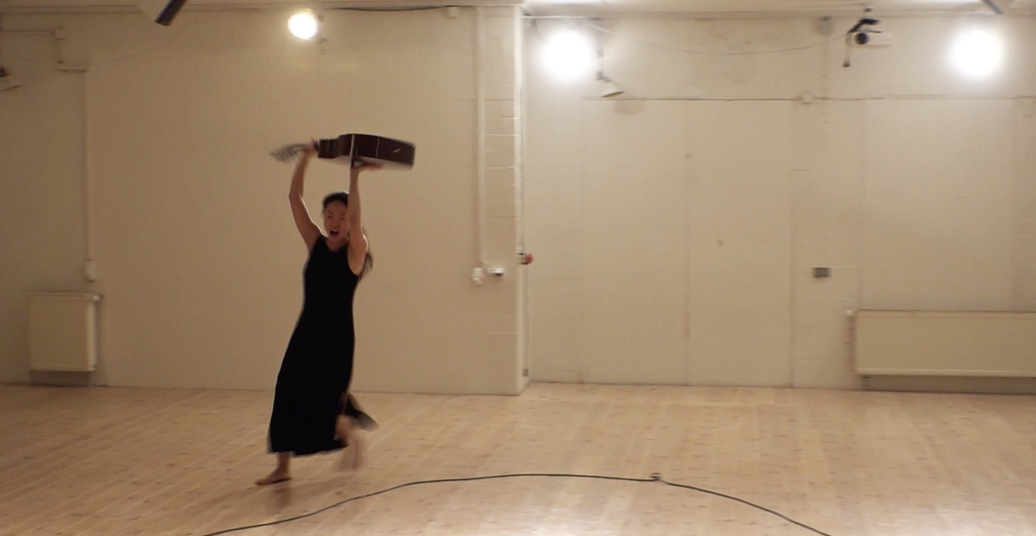Once a month, the dance research and residence centre Lake Studios hosts “Unfinished Fridays”, an open studio providing an opportunity for residents and other invited guests to share their works-in-progress, followed by a facilitated feedback session with the audience.
I’m going to start at the end of the evening, because that’s where things really came together for me. There are about 20 of us, maybe more, seated in a circle, most of us on the floor and some of us on chairs. The studio we are in is large and beautiful; it feels quite far from Berlin but it’s still inside the AB zone. We have just watched five performances, four of which were solos, and all of which were works-in-progress. I’m surprised and impressed by the number of people who have chosen to stay for the feedback session after the showings.
The evening’s facilitator explains: “So, we’re going to talk about the performances in the same order as the programme, just because that’s simplest. Each artist will briefly introduce themselves and their work, and then we’ll open up to the audience. You can share what you saw, your impressions, moments that stood out for you. If you agree, you can just say, ‘Plus one!’. Then we don’t have to repeat ourselves. We have seven minutes for each performance. Once the timer goes off, we’ll bring things to a close and move on to the next artist.”
It hasn’t been an easy evening for me. A headache is starting to grow from a knot in my neck, and I’m nauseous due to a poor falafel decision. I’ve also been preoccupied with the very gentle crisis of watching, and then writing about, works that are unfinished. Watching a work-in-progress asks for a different kind of eye – one that is more generous and open to potential. I ask myself how I can bring this openness and generosity into the text I am going to write. A complete text about five incomplete performances. Tricky.
The first artist finishes her introduction and is greeted by a brief silence. Then someone breaks the ice and the conversation starts to flow. My preoccupations fade as I listen. The artists are joining in, also giving feedback to their fellow performers, and after a while, it doesn’t even feel like a question of ‘artist or audience’ anymore. The group is beginning to establish itself through the shared witnessing of a series of events, and I feel buoyed by the generous exchange happening around me. There is a definite kind of “we” emerging.
For the next hour, we discuss the effectiveness of Johanna Kasperowitsch’s costuming, and which excerpts felt strong to whom. Several of us speak of Franziska Doffin’s striking performance quality, and then one of us asks about the shirt she used as a prop or partner. We admire the explosive and very real unravelling of the one-person musical about racism for children by Inky Lee, my fellow Tanzschreiber author. A couple of us encourage Dakota Comín to keep exploring the single diagonal line she sets up with her movement material, and we all agree that the way in which she arranges the audience around this diagonal is effective. We hear about the processes behind Moonsuk Choi and Yamila Khodr’s choreography for four dancers, and finally, we collectively ponder how to transition from the opening scene, where the dancers are speaking, into the first movement sequence.
The facilitator thanks us and officially closes the evening. For a very short, but rich moment, all the bodies in the room sit quietly together. In the warm applause that follows, the “we” begins to disperse. Some of us linger, still caught up in thoughts and conversations. I chat with one of the artists, who works in a similar field of interest to mine, offering to send her some readings – and I notice my headache is gone. On the way home, I reconsider the tricky little problem that was worrying me at the beginning of the evening. I realise that perhaps I don’t want to write a text ‘reviewing’ these works-in-progress at all. I’m much more interested in pointing towards the shared practice that “Unfinished Fridays” facilitates: fostering the vital, and almost radical act of thinking with others.




